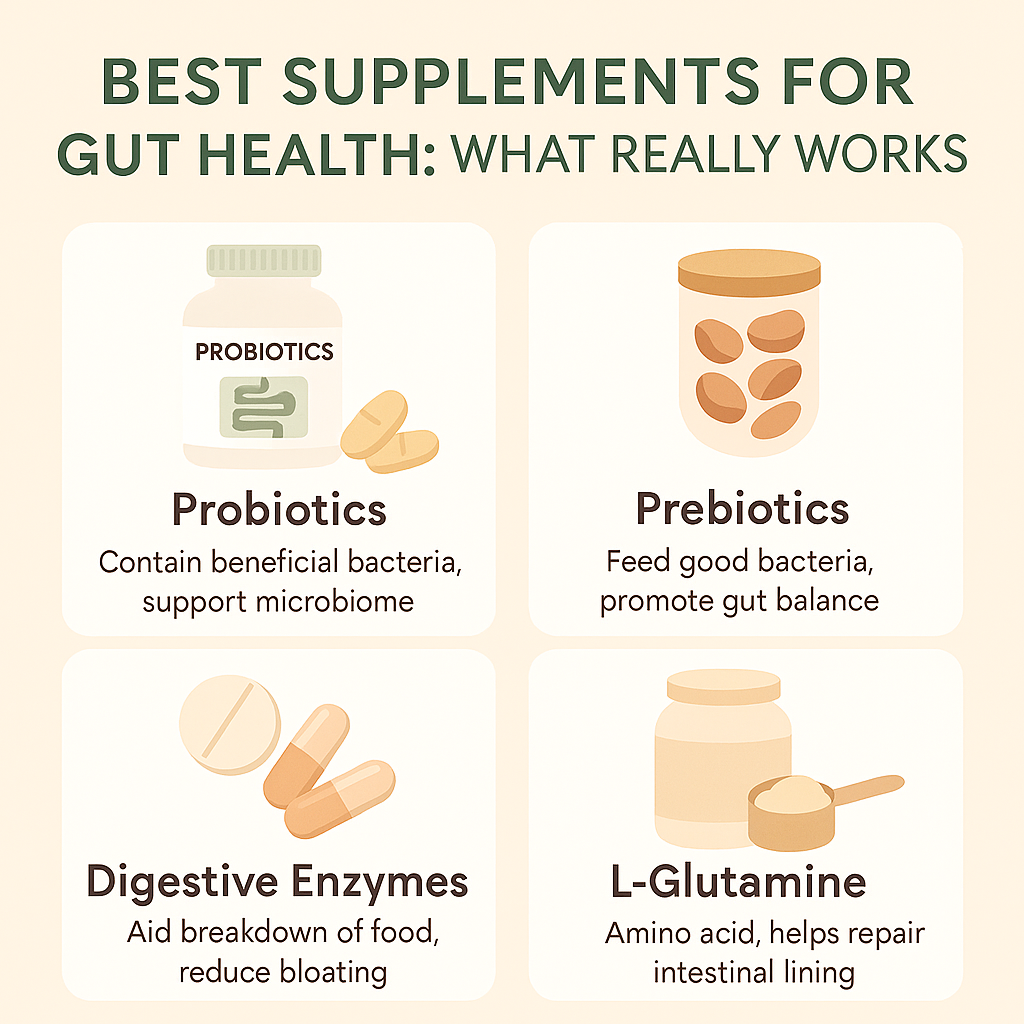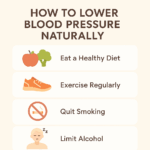If you’ve ever experienced bloating, irregular digestion, or food sensitivities, you’re not alone. Gut health is the foundation of overall wellness—impacting everything from immunity to mental clarity. But with shelves lined with capsules, powders, and drinks promising gut benefits, it begs the question: what are the best supplements for gut health that actually work?
Let’s unpack what science and experience say about gut supplements that go beyond the hype.

Why Gut Health Matters More Than You Think
Your gut is home to trillions of microbes, collectively known as the gut microbiome. These bacteria influence digestion, nutrient absorption, immune response, and even your mood via the gut-brain axis.
An unbalanced microbiome can lead to issues like:
- Chronic bloating or constipation
- Food intolerances
- Weakened immunity
- Anxiety or depression
That’s why supporting gut health with the right supplements can have far-reaching benefits.
Top 5 Supplements for Gut Health: What Really Works
1. Probiotics: The Cornerstone of Gut Wellness
What they are: Live bacteria that restore the natural balance of the gut microbiome.
Proven Benefits:
- Reduces symptoms of IBS (Mayo Clinic)
- Supports immune function
- Improves nutrient absorption
How to Choose:
- Look for multiple strains (e.g., Lactobacillus and Bifidobacterium)
- Choose supplements with at least 10 billion CFUs
- Prefer refrigerated or shelf-stable with protective capsules
Pro Tip: Rotate strains every few months to maintain microbial diversity.
2. Prebiotics: Fuel for Your Probiotics
What they are: Non-digestible fibers that feed good bacteria.
Key Benefits:
- Enhances probiotic effectiveness
- Improves bowel regularity
- Supports immune modulation
Top Prebiotic Ingredients:
- Inulin (from chicory root)
- FOS (fructooligosaccharides)
- Acacia fiber
Prebiotics can be taken alone or included in a synbiotic supplement (a combo of pre- and probiotics).
3. Digestive Enzymes: Help for a Sluggish System
What they are: Proteins that break down food into absorbable nutrients.
Why They Matter:
- Alleviate bloating, gas, and indigestion
- Aid in nutrient absorption, especially if you have low stomach acid or pancreatic issues
Common Types:
- Protease (for protein)
- Amylase (for carbohydrates)
- Lipase (for fats)
Best Time to Take: With meals, especially heavy or complex ones.
4. L-Glutamine: The Gut Lining Healer
What it is: An amino acid that plays a crucial role in intestinal repair.
Top Benefits:
- Supports leaky gut healing
- Reduces inflammation
- Helps maintain the integrity of the gut lining
Often used by people recovering from gut infections, chronic stress, or autoimmune conditions.
5. Zinc Carnosine: The Unsung Hero
What it is: A compound of zinc and carnosine, shown to protect and restore the gut mucosa.
Scientific Backing:
- Enhances the repair of stomach and intestinal tissue
- Shown to support ulcer healing (PubMed Study)
- May reduce intestinal permeability (aka “leaky gut”)
Safe for long-term use and well-tolerated by most.
Supplement Comparison Table
| Supplement | Primary Benefit | Best For | Key Consideration |
|---|---|---|---|
| Probiotics | Balances gut microbiome | General gut health | Strain diversity & CFU count |
| Prebiotics | Feeds good bacteria | Constipation, bloating | May cause gas initially |
| Digestive Enzymes | Improves digestion | Food intolerances | Take with meals |
| L-Glutamine | Heals gut lining | Leaky gut, stress | Powder form often more effective |
| Zinc Carnosine | Repairs mucosal lining | Ulcers, IBS, gut repair | Take with or after meals |
What About Fermented Foods and Natural Alternatives?
If you prefer whole food sources, these options naturally support gut health:
- Yogurt & kefir (rich in probiotics)
- Kimchi, sauerkraut (fermented vegetables)
- Garlic, onions, leeks (natural prebiotics)
- Bone broth (rich in collagen & glutamine)
While not as concentrated as supplements, they work synergistically for a healthier gut.
Personal Insight: What Helped Me Most
After struggling with bloating and skin breakouts in my late 30s, I turned to gut health as a root cause. Here’s what worked for me:
- Switched from a generic probiotic to a multi-strain formula with 50 billion CFUs
- Added a digestive enzyme with every large meal
- Started using L-glutamine powder in my morning smoothie
- Cut back on sugar and added fermented foods
Within a month, my digestion felt lighter, and my energy improved noticeably. This journey taught me that not all supplements are created equal—and you have to find the right combo for your body.
When to Talk to a Doctor or Dietitian
Some gut symptoms may signal deeper issues like SIBO, IBD, or celiac disease. Supplements can help, but they aren’t a cure-all. If you experience:
- Chronic pain or cramping
- Severe bloating or diarrhea
- Unexplained weight loss
Consult with a professional for proper diagnosis and treatment.
Final Thoughts: Best Supplements for Gut Health That Actually Work
So, what really works? The best supplements for gut health are those that align with your specific needs, backed by science and adjusted through personal experience.
Start simple. Maybe add a probiotic and monitor changes. Then layer in digestive enzymes or L-glutamine if needed. Always track your symptoms and consider keeping a gut health journal.
Want to Improve Your Gut Starting Today?
- ✅ Try a high-quality multi-strain probiotic for 30 days
- ✅ Add prebiotic-rich foods to your meals
- ✅ Monitor how you feel and track your digestion
For more tips on holistic wellness, check out our related articles:
- How to Lower Blood Pressure Naturally
- Top Vitamins for Women Over 40
- Anti-Inflammatory Diet Tips for Beginners
Subscribe to our newsletter for more actionable wellness tips, gut-friendly recipes, and exclusive product reviews!



